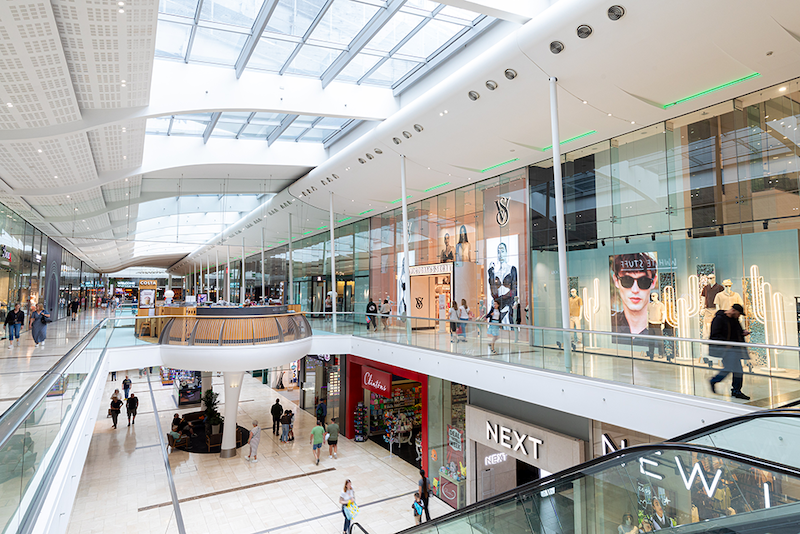Embracing the future of finance: why cryptocurrency matters in retail
The financial sector has seen a significant shift in recent years with the rise of cryptocurrencies like Bitcoin, Ethereum, and other digital currencies. Regardless of their inherent volatility, these virtual forms of money are rapidly establishing their place within mainstream economics.
For retailers, this wave of financial evolution brings a host of opportunities and challenges that cannot be ignored. Below, then, we will delve into the compelling reasons why retailers should consider taking cryptocurrencies seriously.
Recognising the momentum of consumer behaviour
The number of individuals who use and invest in cryptocurrencies is growing at an exponential rate, which you can see when you check out Ethereum (ETH) | Live Price, Interactive Charts, Converter, News | Binance.US. This surge in popularity represents a consumer trend that retailers cannot afford to sideline.
As digital consumers are increasingly seeking venues to spend their amassed cryptocurrencies, retailers accepting this new form of payment are poised to attract a wider, more diverse customer demographic.
This group includes millennials who are typically more tech-savvy, and also international shoppers who appreciate the borderless nature of cryptocurrencies.
Tapping into global markets
Cryptocurrencies, being inherently global, do away with the hassle of currency exchange. This gives retailers an excellent opportunity to extend their reach to international customers with remarkable ease.
When retailers accept cryptocurrencies, geographical and financial boundaries become irrelevant, inviting customers worldwide to make purchases, regardless of the locally dominant currency.
This opens up a whole new world of potential customers, transcending the limitations of traditional retail markets, and making it easier than ever to break into new territories and hit the ground running.
Cost effective transactions
One of the most tangible benefits of accepting cryptocurrencies is the potential for lower transaction costs. Traditional payment methods, including credit cards and various online payment systems, often levy significant transaction fees.
These fees can, over time, take a substantial toll on a retailer's profit margin. However, the decentralized structure of cryptocurrencies eliminates the need for a third-party financial institution or payment processor, resulting in significantly reduced transaction costs.
Transaction speed and security
Blockchain, the technology underpinning cryptocurrencies, enables swift and secure transaction processing. The transparent, immutable ledger system of blockchain mitigates the risks of fraud and chargebacks, providing an extra layer of security for both the retailer and the customer.
This is particularly beneficial for high-value transactions or for retailers operating in regions where fraud rates are high because you will have indisputable evidence to fall back on if a claim of impropriety is made or if someone tries to scam you.
Distinguishing your brand in the marketplace
In today's competitive retail landscape, accepting cryptocurrencies could provide a much-needed point of differentiation. It sends a clear signal of innovation and adaptability, qualities that can set a retailer apart in a crowded marketplace.
Offering customers the option of crypto payments can be a unique selling point, separating your business from competitors and establishing a cutting-edge brand image.
Future-proofing your business
Early adoption of innovative technologies can lead to significant future benefits. Retailers who readily adapt to the use of cryptocurrencies will be better equipped to operate successfully in a future where these digital currencies could be as common as traditional fiat currencies.
Being part of this digital and decentralized economic revolution early on can potentially yield considerable advantages as the trend continues to gather momentum.
Upholding data privacy
In an age where data privacy is a pressing concern for many consumers, the semi-anonymity provided by cryptocurrencies can be a major draw. While transactions are publicly recorded on the blockchain, personal information is not directly linked to these transactions, ensuring a higher level of privacy than traditional payment methods.
Enhanced customer experience
By accepting cryptocurrencies, retailers can provide an enhanced shopping experience for their customers. The speed and efficiency of cryptocurrency transactions mean that customers can make purchases more quickly and smoothly.
Additionally, the novelty and tech forward aspect of using digital currencies can make shopping a more exciting and modern experience for customers. This is particularly true for younger customers who are more familiar with and open to technological innovations.
Greater transparency
Blockchain technology offers a high level of transparency since all transactions are publicly recorded on the blockchain.
This allows for greater accountability and could help to build trust between retailers and customers. It's also harder for fraudulent or incorrect transactions to go unnoticed, which can help to protect both parties.
Flexibility and control over payments
Traditional payment systems are usually controlled by banks or other financial institutions.
This means that retailers are subject to their rules, fees, and operating hours. Cryptocurrencies, being decentralized, give retailers more control over their financial transactions. They can accept payments 24/7, and they're not subject to the fees or limitations set by any specific institution.
Resilience against financial crises
Cryptocurrencies are not tied to any particular country's economy, which can make them a more resilient form of payment in the face of financial crises. If a retailer's local currency were to crash, having a portion of their revenue in cryptocurrencies could potentially offer some financial stability.
Environmental considerations
Although cryptocurrencies, particularly Bitcoin, have been criticised for their energy usage, many newer cryptocurrencies are using more energy efficient algorithms. Some digital currencies are even going a step further by offsetting their carbon footprint or contributing to environmental causes.
Accepting these green cryptocurrencies could help retailers to improve their environmental credentials and attract eco-conscious customers, who are becoming a bigger and bigger segment of the market all the time.
In summation, the emergence of cryptocurrencies provides retailers with a promising opportunity to expand their customer base, reduce transaction costs, and stay ahead of the curve in the evolving retail landscape.
While the integration of cryptocurrencies into a retail business model requires a solid understanding of this novel technology and its potential risks, the potential rewards are too significant to overlook.
As our world becomes more digital, it's the retailers who dare to embrace change - like accepting cryptocurrencies - who may find themselves leading the charge in the retail industry's exciting future.
















Continue reading…